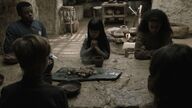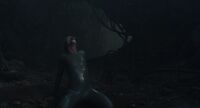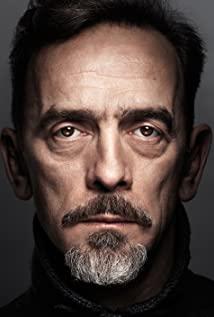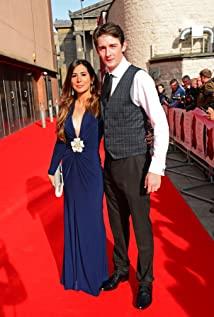The title of the film has fully exposed the creator's ambition, but also hinted at the theme of the play: First, "Raised" (Raised), which is an epic structure that is linked to reproduction and then to survival. The second is that "By Wolves" completes this key process, which constitutes a dramatic conflict of "misplaced (illegal) benefactors".
The raising of human embryos by androids on Kepler-22, the raising of Paul by Marcus/Celab and Sue/Mary, the raising of serpents by androids and their raising after crossing the planet No span, but Orochi did grow along the way). Even according to the plot hints, the beginning of human beings on earth may also be the support of alien civilizations.
Every kind of parenting is full of contradictions. The most intuitive presentation is Necromancer, which is Mother. In the play, these two titles are superimposed on the man-made man, which itself assumes a contradictory subject: the destroyer/nurturer (or even the fertile). Too many concepts, meanings, and plot points are poured into this character. Dominance at the family level is almost a complete reversal of the traditional division of labor between men and women in the family (Mother); in group cognition, it is a "state machine" that constitutes a terrifying ultimate weapon (Necromancer), hurting through sight and hearing—— The former is naturally reminiscent of the Greek mythology Medusa, while the latter implies that all the information heard in the plot may be a way of harm. This kind of lethality caused by the senses reflects the high level of the creator of the drama.
What is more delicately portrayed in the plot is the blurred boundary between "human and artificial human" embodied in this character; it is still the process of artificial human beings acquiring human nature, or the legitimacy of human beings. From arguing with the father over the responsibility of parenting in the family, to the satisfaction and joy of kissing the creator in the SIM (Blade Runner 2047 tribute or reference), to the last childbirth - even cruelly with the infertile (miscarriage) Mary/ Sue Dialogue - All showing humanity. It has to be said that the successful development of this theme is inseparable from the superb performance of the actor Amanda Collin imitating the robot, which is slightly mechanical and yet full of human emotions.
Another battlefield of this contradictory human nature is Marcus/Celab. As a disguised atheist, he entered the group of theists and became the leader. His final belief in Sol constitutes evidence of the fragility of human nature: the heart is still dominated by appearances. , the lust for power is understood as an oracle - according to a possible reading, all auditory hallucinations are the will of a purposeful higher intelligence, in which case Marcus/Celab's role does take on the part of tragic reflection.
Therefore, can we assume that the Mithraism in the play is the object of mockery? But we see that little Campion naturally has an urge to believe in forces other than human beings, so the logic in the play is not to deny God, but to suspect that the God that humans believe in is a "God" glorified by human beings' own wishful thinking, a kind of self Satisfying gorgeous misreading; there is indeed an existence higher than human will, but it is very likely to be a civilization with superpowers, and it also magnifies the biological nature of human beings: decisive cruelty for survival.
This can also be extended to the crisis and speculation of identity: when a world is divided into "theism" and "atheism" by binary opposition, how to distinguish the difference in the understanding of God? This interesting confrontation fell on the two children. Campion and Paul are the recipients of two types of auditory hallucinations. Will this evolve into two opposing forces in the next season? From the Raised By Wolves allusions, we can also smell the fraternal drama, but the emotional foundation of Campion and Paul's sibling scenes in the first season does not seem to be solid. However, the setting of this "auditory" recipient is strengthened in the last few episodes, and people can't help but think about whether the conflict that breaks out will reproduce the Homer epic where humans act as "agents of war" for the gods .
Another exciting foreshadowing is Tempest. The heretics in the theistic group gradually identify with the anthropomorphic emotions, and at the same time are another kind of childbirth - almost all the pregnancies in the play are "illegal", which is the core conflict of the play (Paul's true identity is also suspicious). Tempest is a victim of the power structure, and the audience can see many shadows of reality projection in her, which is completely different from Mother's conception in the SIM, but the latter seems to be out of the "free will" of the artificial human, but in the deep Logically, Mother's conception had to be said to be a kind of coercion and an unconscious trap. In this case, the baby in the unborn Tempest's belly constitutes a great suspense due to "counterpoint". This kind of trend of the plot is still very regrettable, because the layout of the whole character seems to show the dominance of women, but in the core concept, it is still the identity of conception.
Reproduction, nurture, identity. The next thing to discuss is probably the remaining plot in the Raised By Wolves allusion: founding a country. Audiences are taken to a wider stage in the final episode: the tropics, the center of the earth, the new human colony, the cave paintings that Paul discovers revealing the fate of Earth and Kepler-22, not to mention those that have been exposed on the surface for a long time The real body of the snake bone. This brings a broad imagination to the plot of the founding of a country, or more precisely, the establishment of a colony.
It is hoped that the superposition of these elements will reveal more reflections on human behavior and thinking.
View more about Raised by Wolves reviews











